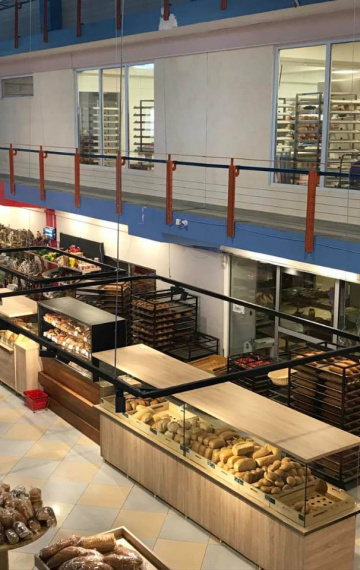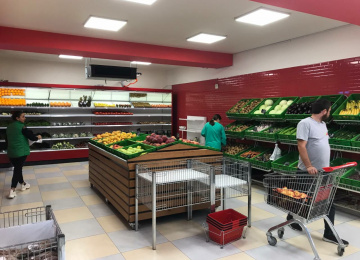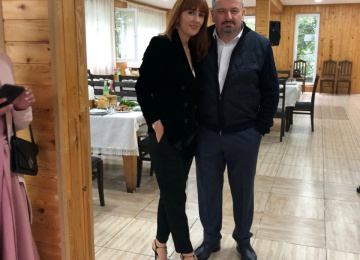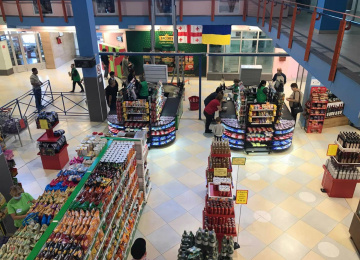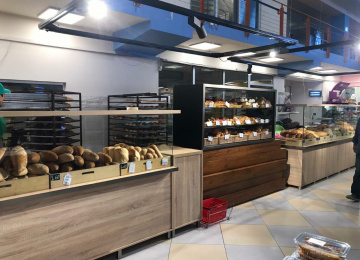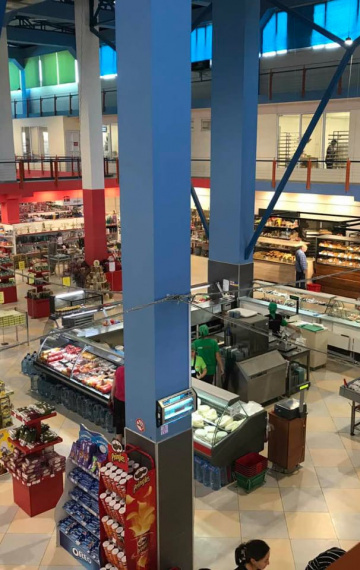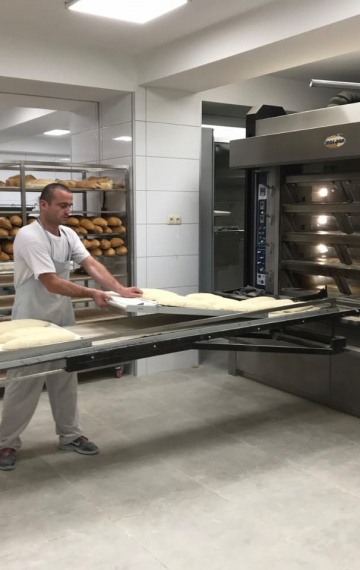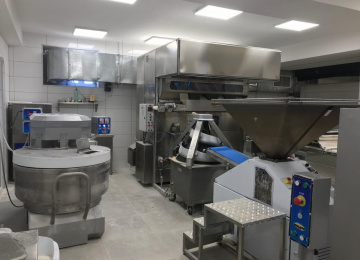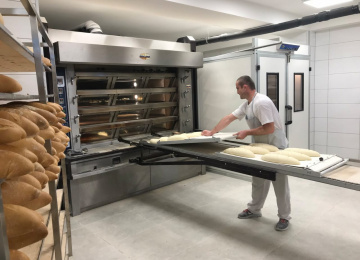Regional hypermarket chain in Georgia increases sales and expands business with EU4Business support
Sixteen years ago Irakli Siradze and his wife Maia Beridze decided to start their lives afresh and open a business. After three years of hard work, they had built a 4,500-square-meter building in Ozurgeti, the capital of the western Georgian province of Guria. The couple started to rent the space out to a local farmers’ market – but soon their lives took a different turn.
“Over the next five years, we discovered that the farmer’s market was not part of our journey,” said Siradze. Instead, they spotted another opportunity and started to expand their grocery store, as back then there were no major players in the Georgian market. The couple added about 1,500 square meters to the building they already owned and opened a hypermarket called “Pirveli Savachro Sakhli”, with eight cash desks and a large variety of products.
“Pirveli Savachro Sakhli,” which means “The First Trading House,” started as a small company with eight staff members. It now employs nearly 150 people. Siradze says most are locals, including some who had left to work in Tbilisi for higher salaries but, with his support, returned to Ozurgeti.
“There is a shortage of workers because a lot of people have left the region and even the country, so providing new job opportunities is crucial,” Siradze explains.
Rapid growth
The company was already growing fast, but support from the European Union’s EU4Business programme gave the company to chance to expand even more rapidly. Crucial to Siradze’s expansion plan was a software package called Apex, a Georgian-developed automated management system adaptable to a range of enterprises. Siradze needed the program to efficiently manage his hypermarket stock and provide the best possible service to its customers.
But there was a big problem – the price.
“When we first logged in to the Internet to buy the program, we were blown away by the price,” Siradze says.
“It was about $15,000-20,000. We couldn’t even have imagined it would cost so much. But then we found out about the Advice for Small Businesses (ASB) programme supporting non-material intellectual acquisitions .” The project financed by the EBRD shareholder fund and merchandized by the EU, would co-finance the APEX program, helping the company move forward in its journey.
Buying the software was the first step, establishing order in a 6,000-square-meter building was the next. Again through ASB and with the EU support, they were able to hire a group of stock managers who ensure that inventory levels are tracked, issues and shortages are reported, and products are displayed on the shelves in an orderly manner.
Later the company got even more support through the EU4Business-EBRD Credit Line – a joint programme of the EU and the European Bank for Reconstruction and Development(EBRD). Through it, the EBRD helps Georgian small- and medium-sized enterprises finance investments and seize the opportunities under the DCFTA – the Deep and Comprehensive Free-Trade Agreement Georgia signed with the EU in 2014. In all cases support involves investing in new equipment and technologies that facilitate compliance with EU Directives. For “Pirveli Savachro Sakhli” support came in the form of an EBRDcredit of EUR 160,000 to open a bakery. The EU complemented the offer with a grant incentive.
For some time, the company’s staff had been working flat out to produce enough bread daily to meet local demand, and Siradze knew that his enterprise was badly in need of some new equipment. Luckily, the EU4Business programme and the EBRD were ready to help.
“We went to Italy and started negotiations with a company there,” Siradze says. “We came back with new, advanced equipment and were able to not only improve the working conditions for our employees but also increase production volumes and quality,” says Siradze. The equipment included dough cutters, a stone oven, and everything else that was needed to build a high-tech production line for baking bread.
The new equipment made the work quicker and easier.
“Before, our employees would work through 30 sacks of flour day and night,” Siradze says. “Now they finish at about 3 p.m.”
“The entire working schedule has changed. It would be impossible to continue working the way they used to. We needed five guys to work on 20 sacks (of flour). Now two people can do the same.”
While other businesses shut down one by one during the COVID-19 pandemic, the hypermarket thrived. Once people came back to the regions, the enterprise saw a massive increase in sales, and it has been able to maintain some of those numbers until today. The business now has over 2,700 daily customers –and the number is on the rise.
Paris vs Ozurgeti
Siradze and his wife now have big plans for their hypermarket. The company pays over GEL 40,000 (about EUR 14,000) in electricity bills every month, using over 1.2 million kilowatts per year, so the number one priority for the future is to install solar panels.
“This would make a huge difference,” Siradze says.
The next step is to use the 6,000 square meters of space they have as efficiently as possible. Maia Beridze is already running a fitness centre there, and, together with experts from Tbilisi, the couple is currently working on opening a four-floor cafe with a VIP zone, a huge terrace, and an open kitchen.
“The number of potential customers is low in Ozurgeti, so as a business owner you have to attract every single one of them,” Siradze says. “You do that by offering a variety of services.”
“If we make mistakes, it’s okay. The important thing is to correct them.”
Ready-made meals – from fried chicken to rice and salads – are now especially popular. Siradze thinks this is the way forward, as people are tending to cook less at home and buy more pre-made meals. Every day, hypermarkets all over Georgia and beyond are baking bread and pastries, often producing read-made meals as well.
So Siradze is now looking at the EU market to see the future shape of his business.
“Whatever happens in Paris will happen in Ozurgeti – it just takes time,” he says.

